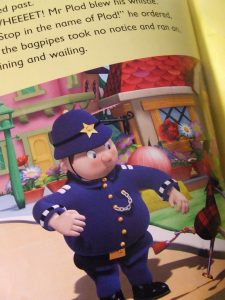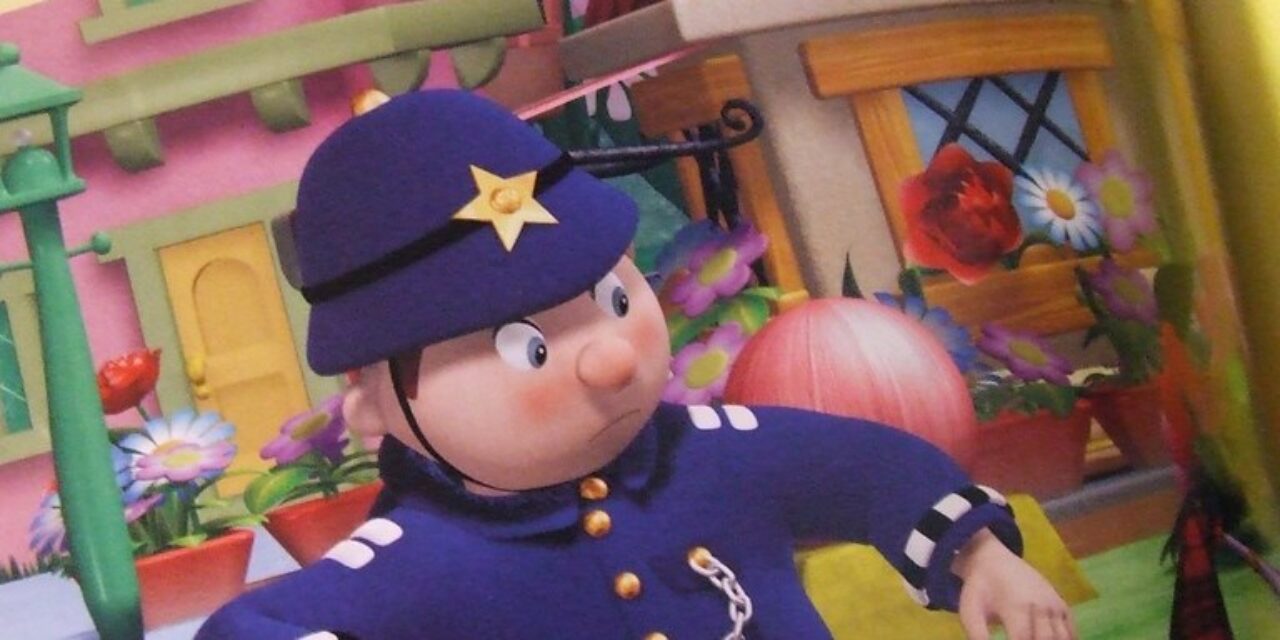Birt í Reykjavík Grapevine, ág. 2013
It comes and goes, the rage against the Machine. Every so often it boils over, causing an uproar of surprise and dismay about the blatant abuse of power by society’s purported watchdogs. Swine, slaves, cops. Call them what you will, but rest assured that it won’t be long until another video of Iceland’s finest strangling a teenager or pepper spraying reporters stirs grunts and growls in the otherwise peaceful dorm-halls of Icelandic journalism and debate.
The outcome is a wave of opinion columns where the political left shares its delusional views on proper police work. The week after, it yawns economics, confirming the painful fact that debate in Iceland mostly serves as recreation for the commentators.
The most recent example of this is the reaction to a video that shows a policeman in downtown Reykjavík brutally arresting a lady so shitfaced that she can hardly stand. He is currently undergoing investigation, while a softball version of the ‘rotten apple’ game is played in the media. Instead of shunning institutions and waiting for ‘a few rotten apples’ to come rolling back, the Icelandic left assumes rottenness in this particular individual and waits for the state to deny it.
The fuss
Shit happens and people get all worked up. Yet it should come as no surprise. It happens like this and worse than this. All over, all the time.
Sure, the arrest was unnecessary and undignified, but what gets me is the amazed and confused pitch of the discussion. The seemingly genuine surprise at the fact that heavy-handed officers sometimes make the law up as they go. In recent years we’ve learned of mass deportations, surveillance, torture and sexual offenses; illegal actions executed and (sometimes) initiated by this band of pesky authoritarians. It’s not cool, but by now it ought to be expected.
The flip side
I’ve covered the reaction of the left. The reactionary left. But the right has a voice too.
If you bother the police, they should arrest you, it claims. If the law states otherwise, their reactions are still understandable and should be tolerated. American cops are much harsher. Policing is stressful and unappreciated work. Fuck-ups result from cutbacks. The police need more money. And more weapons.
Convincing. Still, most of the piglet’s superiors have been suspiciously hesitant to defend him. Some cops have even written to the media and condemned his actions. This breach of unity within the police force is highly unusual. Be it heavy handling of suspects, losing drugs or money or the occasional death of people being held in custody, the cops tend to stick up for one another. Like any institution, they need to project a credible image.
They need to seem reliable, sober and just, but most importantly the guys with the batons need to seem sympathetic. They must appear presentable and yes, cuddly. One such cop is Gísli Jökull Gíslason.
The good cop
 Small and mild-mannered, Gísli emits the friendliness essential to this image. Unlike many cops, he’s difficult to put off balance and if he indeed suffers from the megalomania common to most in his line of work, he takes good care to hide it. With his upright posture, stoned eyes and the politely arrogant smirk he reasons with wasted hoodlums or furious protestors without giving way or changing his mood.
Small and mild-mannered, Gísli emits the friendliness essential to this image. Unlike many cops, he’s difficult to put off balance and if he indeed suffers from the megalomania common to most in his line of work, he takes good care to hide it. With his upright posture, stoned eyes and the politely arrogant smirk he reasons with wasted hoodlums or furious protestors without giving way or changing his mood.
In 2010 he ran as a candidate for the Constitutional Council, despite having, in his own words, “few radical or fully molded views.” He said he was running so he could be “an active participant in these dramatic times.”
It is this cocktail of presentability, mindless acceptance and voluntary participation that lead me to classify him as ‘a dangerous man.’
The bad cop ain’t that bad
Being able to articulate his thoughts without casting disgrace on his office, Gísli wrote an article in Fréttablaðið in defense of the officer who appears in the video (July 11). Reeking of objectivity, he notes the high tolerance that the Icelandic police usually show, before stating that the video doesn’t reveal every side of the event. Then he explains how the action mostly follows a standard Norwegian arrest method and credits the officer for his directness. In closing, he mentions that street cops risk getting injured or taken to court for trying to do a good job and urges us not to blow things out of proportion when we judge others.
Good lad! Aiding his pal while promoting sympathy for the police at large. The good cop steps in to pacify a crowd infuriated by the bad cop and his calm, humanistic approach damn near covers up the fact that he isn’t the least bit apologetic.
They do this all the time, playing good cop/bad cop. As if extracting a conviction, they play our full emotional scales like a keyboard. In exercising and defending their authority they appear like the inverse/antithesis, but every action and every word reflects the same conservative ideology. Their diplomacy and aggravation both serve the same institution, the same set of social values. The Yin and Yang of state dominion.
‘All Coppers are Basterds’
An old hooligan hymn warns against cops like Gísli in the language of unrepresented minorities: “All Coppers are Basterds.” Although this poesy may sound a little dualistic and judgmental, it’s worth considering its full meaning: the resonating anger towards the willing participants of this blood-ridden power structure.
To be a cop is to denounce responsibility for your most ethically questionable actions and act out the most authoritarian ideas of society; to align with the perpetrators of history and against its victims; to monitor and control other people’s behavior while taking an indisputable stance with nationalism, observation-society, bureaucracy, and hegemony.
Trust in the police amounts to an absurd faith in ‘the social contract’ and contentment with heavy losses of individual autonomy. Those shaken by police brutality would do well to consider the sanity of employing armed overseers. We must recognize the horrors of authoritarianism and question the motives of those who defend it. Human dignity is threatened, not so much by brutish oafs as their slick, idealist counterparts.
We must never trust the cops.
Especially the nice ones.


